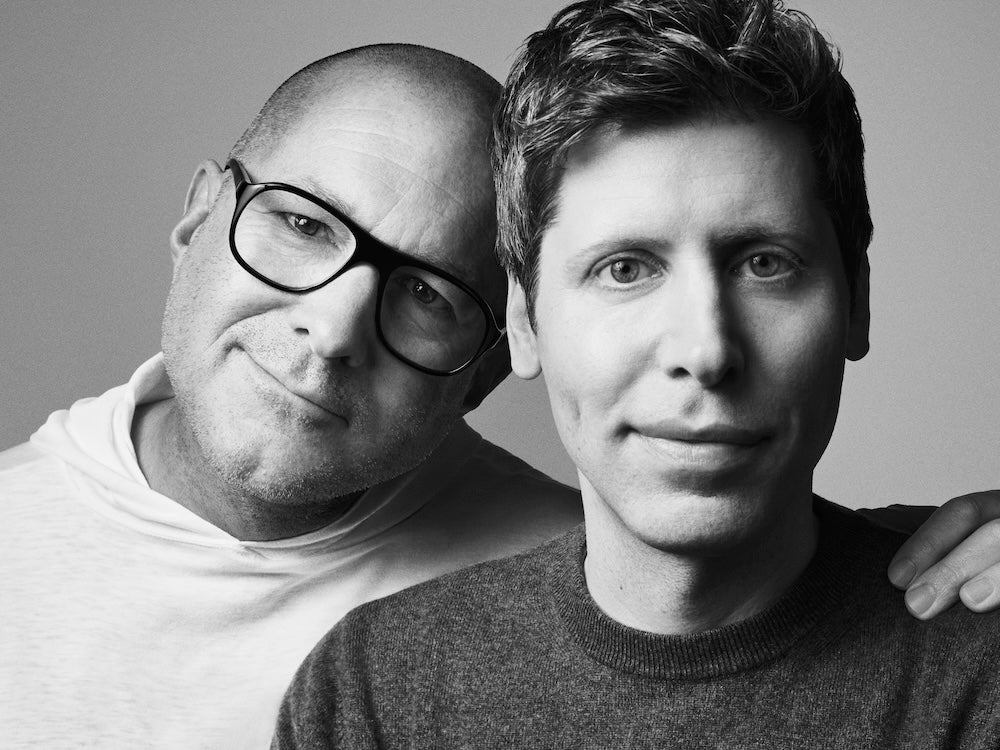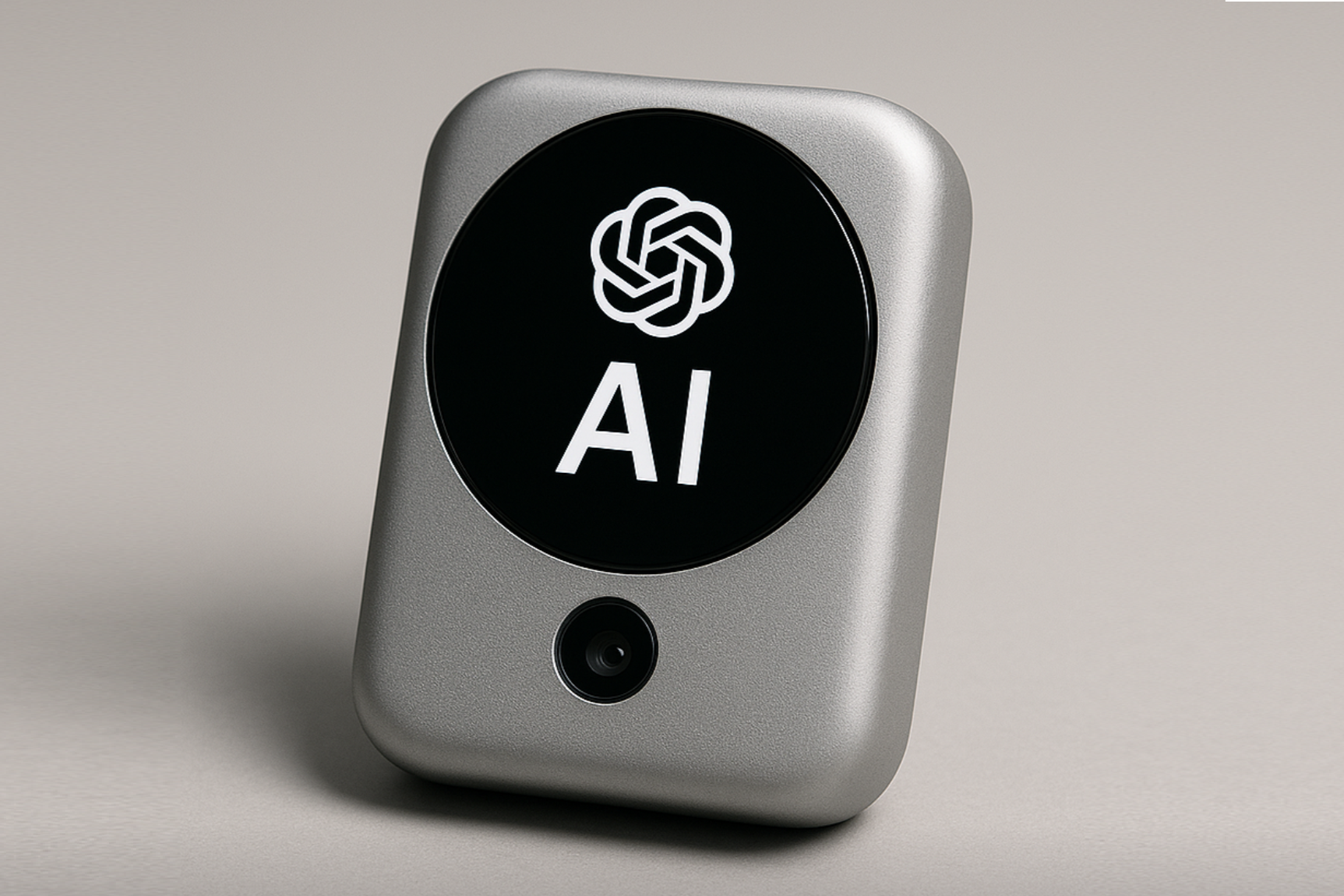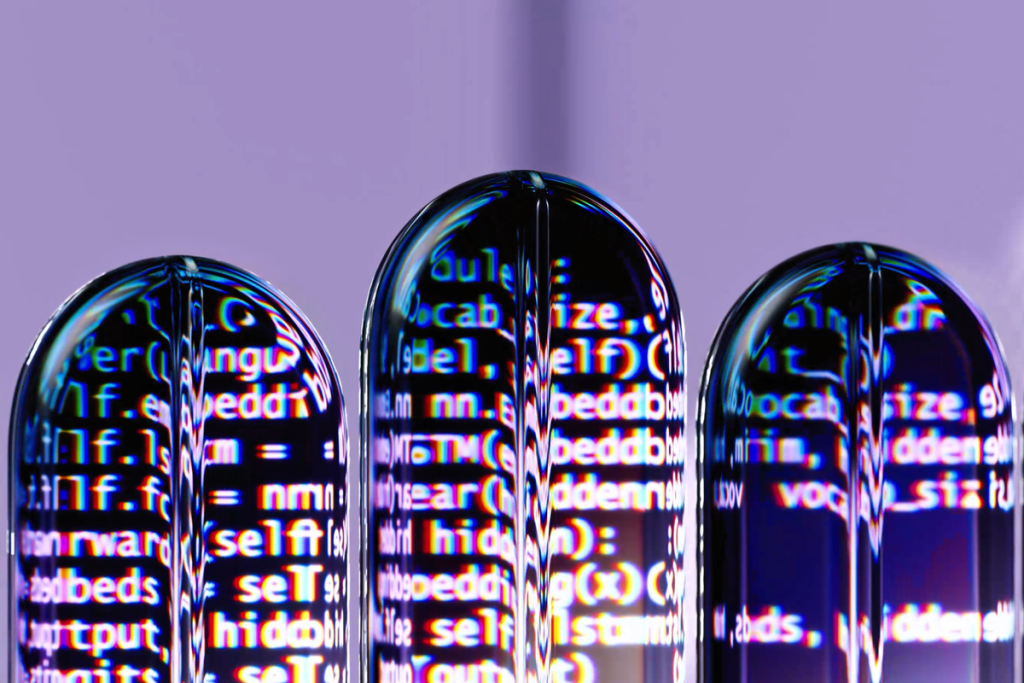It felt more like the trailer for a Hollywood blockbuster than a company video. Spliced between sweeping shots of the San Francisco Bay Area appeared the words: “Two friends… Working together… For two years.”
The first of those friends revealed himself in a voiceover: “We are sitting at the beginning of what I believe will be the greatest technological revolution of our lifetimes.” They were spoken with the unmistakable hubris, and signature vocal fry, of Sam Altman – Silicon Valley’s biggest box office draw since his company OpenAI launched ChatGPT just over two and a half years ago.
The nine minute video, which cost $3 million and was directed by an Academy Award-winning director, announced the sequel to the world’s most popular AI chatbot – yet no specific details were given.
Instead, viewers were left to guess what the collaboration between Altman and his new best friend Jony Ive will actually be. The British designer, who himself has been a darling of Silicon Valley since overseeing the design of the iPhone and MacBook Pro with Apple, claims the mysterious new AI device is the best thing he has ever done. Altman says it is “the coolest piece of technology that the world will have ever seen”.

open image in gallery
In the two weeks since the partnership was announced, rumours and guesses about what form the product might take have included a clothes pin, smart glasses, a smartwatch, and even abutt plug. But in an internal staff call leaked to the Wall Street Journal, Altman said it wasn’t something you wear on (or in) your body.
“The product will be capable of being fully aware of a user’s surroundings and life, will be unobtrusive, able to rest in one’s pocket or on one’s desk,” he reportedly said, adding that the reason for the secrecy was to stop competitors trying to beat them to market.
He described it as a “third core device” – with the first and second core being a computer and a smartphone – and told employees that it would increase OpenAI’s value by $1 trillion. This would be a good return on the $6.4 billion that OpenAI paid to acquire Ive’s product engineering company io last month.
He claimed in the call that when it does launch next year that it will ship “faster than any company has ever shipped 100 million of something new before”. OpenAI has precedent with such popularity, with ChatGPT becoming the world’s fastest-growing app, reaching 100 million active users within two months of its launch in November 2022.
Ruling out speculation that the device will be an “iPhone for AI”, Altman said it will attempt to “wean users from screens”. So if it’s not a phone and not a wearable, will it be a brand new product category? A holdable, in the form of a sensor-filled puck or pebble?
Industry analyst Ming-Chi Kuo posted on X that the planned device will be “as compact and elegant as an iPod Shuffle” and capable of connecting to smartphones and PCs in order to use their computing power and a screen if necessary.

open image in gallery
Whatever it is, there is apparently already a prototype. Laurene Powell Jobs, the widow of former Apple boss Steve Jobs, has seen various iterations of the gadget during its development. In an interview with theFT this week she said she has watched “in real time how ideas go from a thought to some words, to some drawings, to some stories, and then to prototypes, and then a different prototype. And then something that you think: I can’t imagine that getting any better. Then seeing the next version, which is even better. Just watching something brand new be manifested, it’s a wondrous thing to behold.”
Billed in the announcement as “Sam and Jony” (they seemingly missed a trick with the synchronicity of the pair’s ‘AI’ initials), the partnership brings together the man behind arguably the defining technologies of the last two decades, with the man behind the defining technology of this decade so far.
But the video, which took Altman and Ive on a carefully choreographed coffee date, was emblematic of the bubble that Silicon Valley often exists within. According to the San Francisco Standard, the shoot involved shutting down entire streets, relocating bus stops, and hiring police officers to redirect traffic.
It reportedly angered some residents, and if the misjudged video is anything to go by, the mystery product may well miss the mark. If it does fail, it could still change the world forever, just not in the way that Altman and Ive hope: it could mark the popping this Silicon Valley bubble.
There have already been notable failures from Silicon Valley startups trying to reinvent the smartphone with a screenless AI device.
The Humane AI Pin, launched by Ives’s fellow Apple alumni Imran Chaudhri amid huge hype n April 2024, offered a way to bypass screens by projecting a laser display onto surfaces like your palm. Clipped to your clothes, it could also respond to voice queries and offer insights into the world around it through tiny cameras and sensors.
Within weeks of it launching, the AI Pin was derided as a complete flop, and a demonstration of how Silicon Valley hyperbole often delivers products that no one actually wants.
People have been speculating about the “end of the smartphone era” for more than a decade, but we currently use them more than ever.
Ive said in an interview last year that his next device will be an effort to counteract the “unintended consequences” of the iPhone. In an interview this week, he again expressed a sense of regret for his role in creating the iPhone, claiming that “humanity deserves better”.
Thomas Husson, a principal analyst at Forrester, told The Independent that the real challenge here will be to not just use AI to enhance existing tasks, but to invent entirely new products and experiences.
“Except smartwatches, no new product category has emerged since the smartphone,” he said. “There have been some first attempts with startups like Humane – in which Sam Altman invested – or Pin AI, but they failed. That said, there is room for disruption and innovation.”
With Altman and Ive in the leading roles, there is even more buzz surrounding OpenAI’s mystery device than the Humane AI Pin. Yet despite all of Altman’s star power, he is yet to truly deliver on his promises: AI is yet to properly change the world, and ChatGPT is currently losing billions of dollars a year.
He has also been conspicuously quiet about the environmental and existential threat that AI poses. It was just two years ago that Altman signed an open letter warning of the dangers of artificial intelligence. “Mitigating the risk of extinction from AI should be a global priority alongside other societal-scale risks such as pandemics and nuclear war,” it stated.
Concluding OpenAI’s recent trailer, Altman’s co-star in this project at least appeared more hopeful about what comes next.
“Everything I have learned over the last 30 years has led me to this place, and to this moment,” Ive said. “I am absolutely certain that we are literally on the brink of a new generation of technology that can make us our better selves.”

